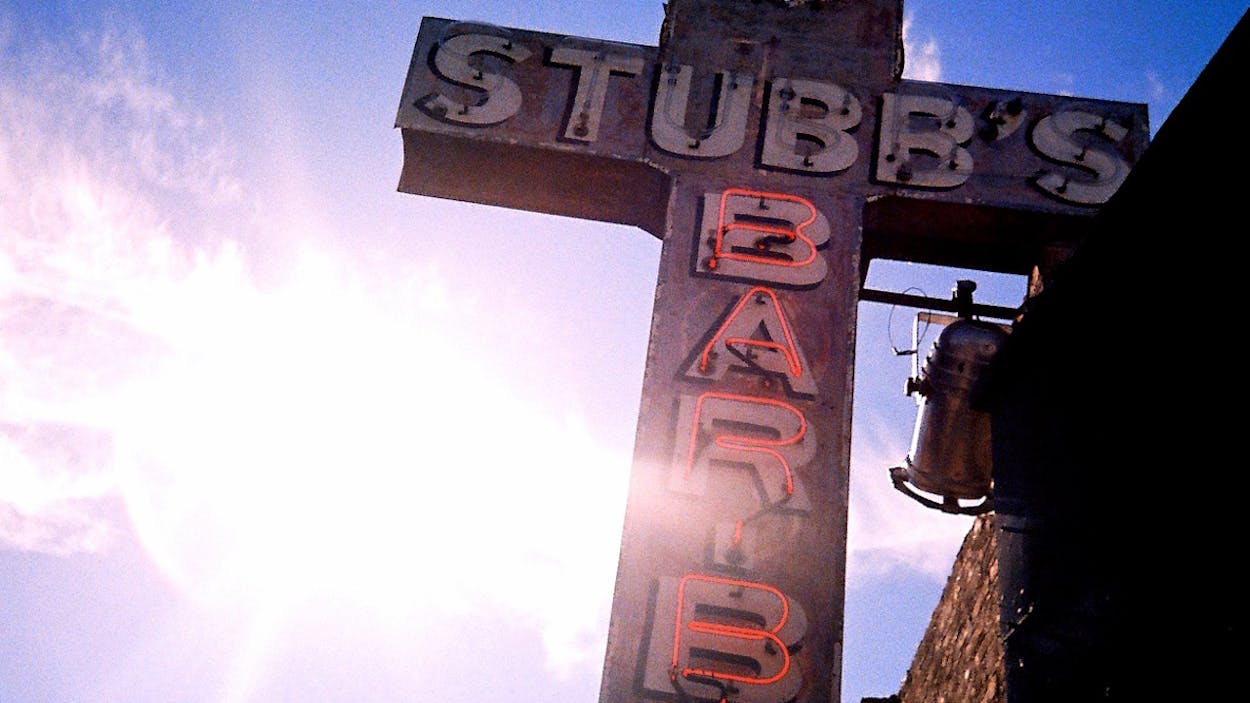Back in June, Stubb’s BBQ sauce sold for $100 million to McCormick, the sauce-and-seasoning giant responsible for a lot of the flavors on our supermarket shelves. But McCormick didn’t buy it from the downtown restaurant that made the sauce famous—it acquired One World Foods, Inc., the company behind the retail Stubb’s BBQ sauce since the early nineties. And since the buyout, things are getting testy between One World Foods and the Austin restaurant that shares a name and branding with the barbecue sauce.
The company has filed a lawsuit against Stubb’s Austin Restaurant Co., which currently operates a restaurant and music venue in downtown Austin. For years, the joint has offered Stubb’s meats at the downtown bar the Mean Eyed Cat, which it also owns. Recently, it expanded to Austin-based grocer Graceland Grocery and has plans to start offering fare at the company’s newly acquired Lala’s Little Nugget. As the Austin Business Journal reports:
One World Foods’ lawsuit is asking the court to order Stubb’s restaurant to cease its Stubb’s-branded restaurant operations at Graceland Grocery, a small grocery store at 8600 US 290 West in Austin. […]
“Defendant’s use and promotion of the Stubb’s marks at Stubb’s at Graceland Grocery and Lala’s Little Nugget has resulted in and will continue to result in incalculable harm to plaintiff because of a likelihood of confusion among customers,” reads the suit.
And sure, it’s fair to say that customers could be confused about whether the Stubb’s-branded products sold at Lala’s and Graceland are related to the Stubb’s-branded products sold at their local supermarket. The average Lala’s patron shouldn’t be expected to know that the two split into separate companies over two decades ago.
From the Austin Business Journal’s account, the initial agreement between One World Foods and Stubb’s was relatively informal: The two agreed in 1996 to how the restaurant company would use the Stubb’s branding—but the terms were firmed up by oral agreement with nothing at all in writing, according to attorneys for One World Foods.
That’s where it gets tricky. It certainly seems possible that the two parties came to the decision that the restaurant could continue to operate as Stubb’s if they didn’t expand, while the sauce would sell in supermarkets. As we noted when the sale to McCormick happened, the authenticity that the Stubb’s brand possesses (which made it so valuable) is due, in part, to the fact that there’s a hip restaurant with the same name in the heart of downtown Austin that’s associated with a bunch of cool musicians. That could reasonably be seen as a win-win.
It’s hard to imagine, though, that they built in an exception for Mean Eyed Cat that didn’t also apply to Lala’s or Graceland Grocery, or that they had any plans at all about what to do in the event that the sauce company sold for nine figures to McCormick’s. And with nothing in writing, and everything based on verbal agreements that took place decades ago, all of that might be hard to prove.
Of course, this isn’t the first time that a major international brand came into conflict with a local company that owned partial rights to the branding. For decades, folks in Dublin—near Waco—had their own special Dr Pepper that was only on sale in six nearby counties. A 2012 settlement killed Dublin Dr Pepper, though, proving that it’s tough to be the little guy. What that means for Stubb’s is anybody’s guess, of course. But none of us know what the specific terms of that 1996 agreement, or how they’d be proven in court. And betting against a company that was just acquired for $100 million by a parent with more than $4 billion annual revenue is probably risky.
Still, it’d probably be in everybody’s best interest to figure all this out relatively amicably. Although there’s no shortage of barbecue sauces on supermarket shelves, only one of them comes with the weight that having a popular music venue in one of the nation’s smoked meat capitals gives.








